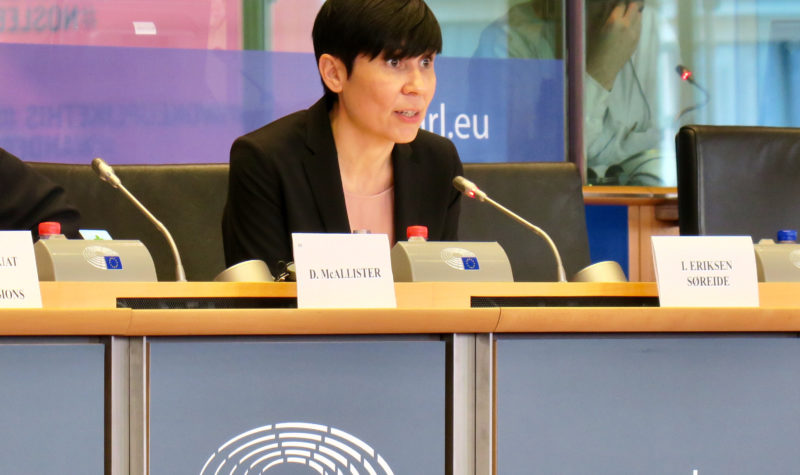Norway’s new EU strategy underlines the importance of the Arctic
Norway's new European Union strategy mentions the Arctic and encourages the EU's engagement in the region.

Norway’s new EU strategy underlines that the Arctic is not a remote place, but consists of thriving local communities and cities in need of sustainable business development.
On Europe day (May 9), the Norwegian Ministry of Foreign Affairs presented its new EU strategy, setting out Norway’s EU policy from 2018-21. Previous EU strategies have not mentioned the High North, but this one underlined Norway’s support to the EU’s engagement in the Arctic.
The strategy states that it is important that Norway informs the EU’s institutions and member states about the actual conditions in the northern regions of Europe.
“We want to communicate that these regions are not remote, but consist of thriving local communities with cities with a need for sustainable business development and improved living conditions,” states the strategy.
The strategy also shows support to the EU’s engagement in the Arctic region. The strategy underlines that the Norwegian government supports the EU becoming a permanent observer to the Arctic Council.
The EU has applied to become a permanent member of the Arctic Council, but the final decision has been deferred several times because the Arctic countries disagree. So far, Canada and Russia have blocked the EU’s application for observer status.
Nils Kristian Sørheim Nilsen, the Director of North Norway’s European Office in Brussels welcomes the new EU strategy.
“The fact that the Arctic is mentioned in the strategy marks a change in the Norwegian EU policy,” says Sørheim Nilsen to High North News.
Ahead of the strategy, the North Norway European Office met with the Ministry of Foreign Affairs, and urged them to explicitly mention the Arctic in the strategy.
“The fact that we now have a EU strategy where the Arctic is seen in connection with Norway’s European policy is particularly important both for our own and the Government’s dialogue with the EU,” adds Sørheim Nilsen.
Sørheim Nilsen also adds that the Government’s focus on the Arctic in the new EU strategy both confirms and builds up under the region’s increased role internationally, as well as the EU’s growing interest in the region.
“We will work towards ensuring that this strategy results in increased research, business- and regional development and new opportunities for the Norwegian part of the High North,” says Sørheim Nilsen.
In the work program for 2018, the Norwegian government underlines its support to the Arctic Stakeholder Forum. The Forum was set up by the in 2016 as a part of the EU’s Arctic policy. The goal of the forum is to enhance collaboration and coordination between different EU funding programs and to bring together EU institutions and local actors to identify investment and research priorities for EU funds in the region.
The forum presented a report in January 2018, summarizing the results from the consultations. The report finds that there is a need for investments in digital infrastructure; internal and external transport connections; and local economic activities, including in the areas of renewable energy and sustainable tourism.
In a speech to the European Parliament in March this year, Norwegian Minister of Foreign Affairs Ine Eriksen Søreide put Arctic on the agenda. She gave her support to the EU’s engagement and interest in the region, and welcomed the Arctic Stakeholder Forum.
“It (The Arctic) is not an icy and remote place. It is where we live,” Søreide said.